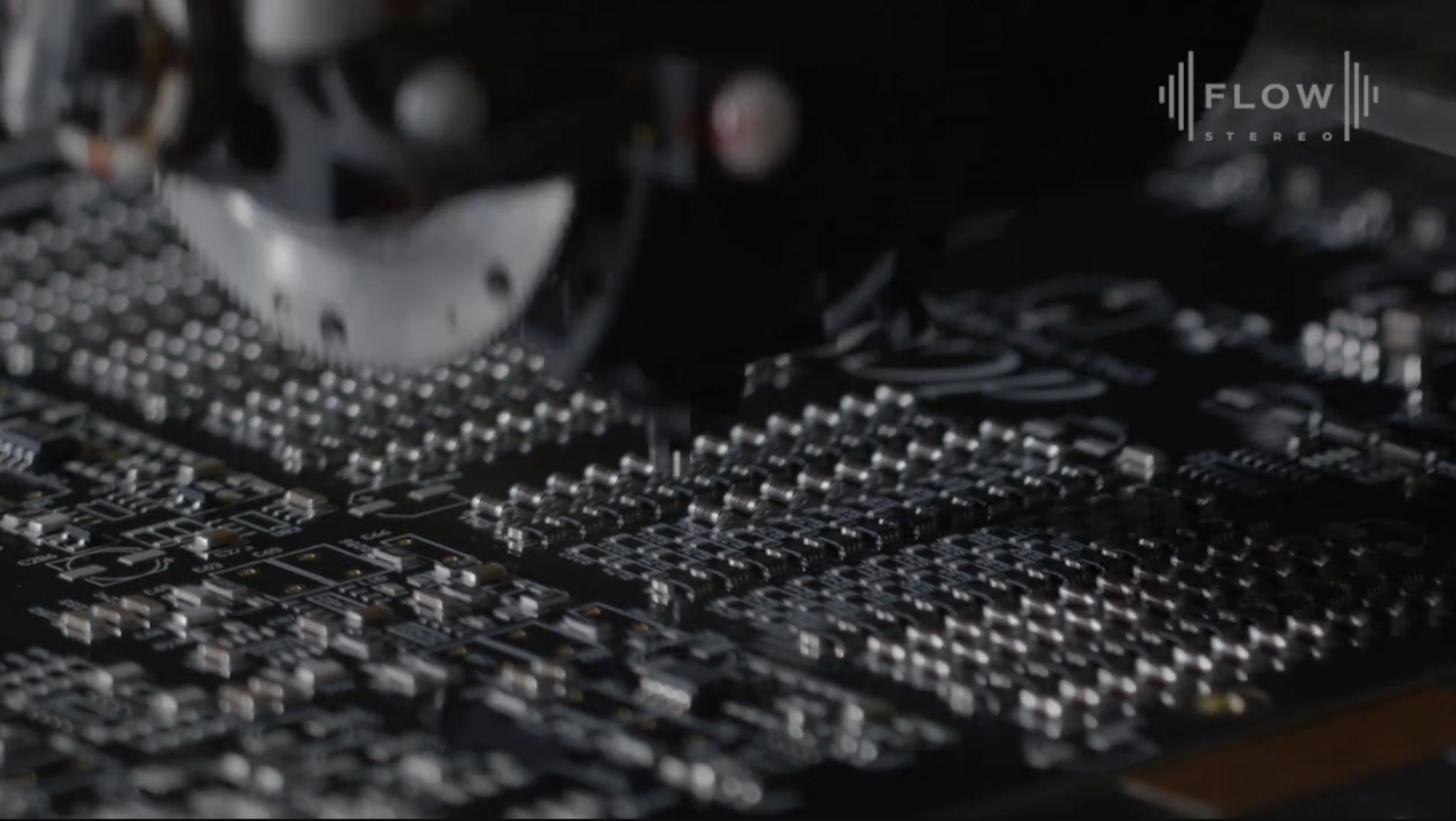In the hallowed halls of cinema, where the visual narrative often reigns supreme, there exists a profound, often understated, magic woven by sound. For too long, the sonic landscape of film has been treated as a mere embellishment, an afterthought to the visual spectacle. But as a lifelong devotee of movie scores and the intricate artistry of film sound, I’ve witnessed a seismic shift on the horizon, spearheaded by a formidable new talent: Killian Wright. His London-based studio, Flow Stereo, isn't just participating in the post-production process; they are fundamentally reshaping it, advocating for a world where sound is not just heard, but profoundly felt.
Wright, an artist who seems to possess an innate understanding of how sound sculpts emotion, believes that true immersion stems from a holistic approach. “We don’t just add sound to picture. We build worlds where sound breathes with the frame,” he asserts. This isn’t a hyperbolic claim; it’s a foundational principle that underpins Flow Stereo’s revolutionary "Flow Sound" philosophy. In an industry constantly seeking to captivate increasingly discerning audiences, Flow Sound is emerging as an invaluable asset for filmmakers striving for truly impactful storytelling.
What I find particularly compelling about Flow Stereo’s methodology is its radical insistence on integrating sound into the creative process from the earliest stages. Wright's studio treats audio not as a post-production layer, but as a foundational component, meticulously composed from conception to serve the emotional, psychological, and visual arc of the work. This is a refreshing departure from conventional approaches, where sound design can feel like a superficial veneer. As Wright eloquently puts it, "Too often, sound design is seen as wallpaper," but when integrated "from the ground up, it stops being background. It becomes tension, texture, emotion." This profound shift in perspective unlocks an entirely new realm of creative possibilities, blurring the lines between music and sound design to create a seamless stream of sonic storytelling. When I listen to Flow Stereo’s work, I hear foley blending with the score to create a cohesive sonic tapestry, percussion patterns embodying character traits, and a lingering reverb tail becoming a potent emotional cue. Wright’s ambition to make “sound breathe with the camera, not just follow it” is not just admirable; it’s audibly realised in his output, elevating the craft to an art form in itself.
Killian Wright’s journey to the forefront of sonic innovation is as fascinating as it is impressive. Born in Ireland, his formative years were spent in the picturesque landscapes of East Anglia, where his early sensibilities for sound and music began to blossom. He later made the pivotal move to London to hone his craft, embarking on rigorous academic pursuits. He studied composition at the esteemed Royal Holloway on scholarship, a testament to his burgeoning talent, and further solidified his musical prowess by earning a piano diploma from Trinity College London. This formidable classical foundation provides him with a profound understanding of musical architecture, a rare and invaluable asset in the contemporary media landscape. Yet, it's his uncanny ability to translate this classical discipline into the dynamic and often demanding language of modern cinematic and commercial media that truly distinguishes him. He effortlessly bridges the gap between the structural elegance and emotional depth found in the works of classical composers like Ravel and Prokofiev, and the atmospheric textures of cinematic titans such as Hans Zimmer, or the melancholic minimalism of Jóhann Jóhannsson. This unique synthesis allows him to craft scores that are both intellectually stimulating and viscerally impactful. Having been mentored by luminaries like David Stowell, Nathan James Dearden, and Nina Whiteman, Wright has cultivated a philosophy of sonic intentionality where every single note, every subtle sound, serves a distinct narrative purpose, ensuring that no auditory element is arbitrary.
His portfolio showcases this philosophy across a remarkably diverse range of projects, demonstrating Flow Stereo’s versatility and innovative spirit. Consider the Vinted "Too Many" campaign, a high-energy commercial where Flow Stereo delivered a hyper-modern collage of rhythm and form. Here, Wright’s genius lay in fusing glitchy pop elements with rhythmic foley, meticulously placing every zip, fold, and notification with a precision that was not merely functional but musical. The result was an auditory texture that transformed the mundane act of Browse fashion into a captivating, almost choreographed dance. Then there's the indie sci-fi thriller Dark Moon, a cerebral space thriller that served as a masterclass in sonic restraint. In Dark Moon, Wright's score masterfully delves into the viewer's subconscious, layering dread not through overt bombast, which is often the easy route, but with subtle, almost imperceptible shifts in sonic tone. The judicious use of percussive decay, metallic resonance, and low-frequency synths conveys the psychological descent of the protagonist with chilling effectiveness, with every creak and groan timed to echo a beat of internal unravelling. It’s a testament to sonic storytelling in its purest, most devastating form, where sound becomes a direct conduit to psychological horror. For dCS Audio, a high-end audio technology brand, Flow Stereo’s objective was crystalline clarity. The final mix, meticulously crafted using spatial ambisonics and phase-accurate layering, is a symphony of sonic purity, ensuring the audience not just hears but feels the innovation that underpins the product. And it's not all high-art endeavours; Wright and the Flow Stereo team are equally adept at quick-turnaround commercial work, as illustrated by their impressive audio rebranding for UK national prison TV channel Wayout TV. Wright recounts the challenge with a blend of pride and pragmatism: “The Channel Manager gave us just three weeks to pitch, complete all concepts, and upload final deliverables for their broadcast debut the following week. A tough gig, but again, we came together as a team and really thrived on delivering to a tight deadline. Less chat - more creation.” This remarkable adaptability and efficiency, coupled with their unwavering artistic vision, truly marks them as emerging leaders in the field, capable of delivering exceptional quality under immense pressure.
His work on the upcoming "Misfortune" is particularly noteworthy, showcasing a bold foray into microtonality and innovative sonic manipulation that promises to be a truly unsettling and unforgettable auditory experience. This willingness to push the boundaries of conventional sound design, to explore the nuanced spaces between notes and to sculpt abstract sonic textures, positions Killian Wright as a truly exciting and trailblazing voice in the evolving landscape of film music. It’s this kind of fearless experimentation that separates the good from the truly exceptional.
What truly sets Flow Stereo apart is their deeply collaborative model, a refreshing contrast to the often siloed nature of post-production. Unlike traditional audio houses, Wright actively involves directors in the sound conversation from the outset. “We treat sound like a character,” Wright states, highlighting a philosophy that leads to organic, integrated soundscapes. He even reveals that they sometimes begin composing from the storyboard stage, a remarkable commitment that allows them to influence the visual cuts rather than merely reacting to them. This collaborative approach is proving exceptionally attractive to filmmakers seeking greater cohesion and artistic integrity across all production elements. Their "Service Re-Fit" option, allowing clients to bring their own royalty-free or pre-licensed tracks for bespoke reshaping and synchronisation, is a brilliant middle ground, providing artistic quality within budgetary constraints. As indie filmmaker Sara Kent enthusiastically praised, “what Killian’s team did with our music completely redefined the emotional tone of the film. It wasn’t just scoring—it was sculpting sound.” This feedback perfectly encapsulates Flow Stereo's transformative impact.
Killian Wright isn’t just a composer and a studio head; he's a dedicated mentor, deeply committed to nurturing the next generation of sonic storytellers. As a professional member of the Independent Society of Musicians, he actively fosters young talent within Flow Stereo, instilling in them an ethos of experimentation, profound musical literacy, and unwavering emotional precision. His mantra to his collaborators, “don’t just make things sound good—make them mean something,” encapsulates the very essence of Flow Stereo’s philosophy. This dedication to legacy and to advancing the art form is further evidenced by their insightful research paper, which meticulously details their new, early-stage ethos for film scoring and sound consideration, providing a roadmap for future cinematic audio.
With a rapidly expanding body of critically acclaimed work across diverse formats and genres, Flow Stereo is poised to become an indispensable partner for directors and producers who truly demand more from their post-production sound. In an age where audience attention is fragmented and fleeting, Flow Stereo creates audio that doesn't just register; it resonates deeply. It lingers in the memory long after the credits roll, leaving an indelible, often haunting, mark on the viewer's psyche. As Wright profoundly puts it: "When a viewer says, ‘I don’t know why that scene gave me chills,’ we know we’ve done our job.”
For those interested in elevating their next production from merely audible to truly unforgettable, Flow Stereo is currently open to commissions, offering flexible entry points for both independent filmmakers and major production houses. And for those eager to experience Killian Wright’s sonic artistry immediately, he has a new track, "Gun Barrel," released this week on all streaming platforms. It's a fantastic homage to the great 1960s and 70s spy film scores of a bygone era, a perfect distillation of his unique ability to evoke atmosphere and narrative through sound, proving that the golden age of film scoring is far from over—it’s merely evolving in the hands of new masters like Killian Wright. You can learn more about their work and feel the impact of Flow Stereo at their website.
Alistair Finch








